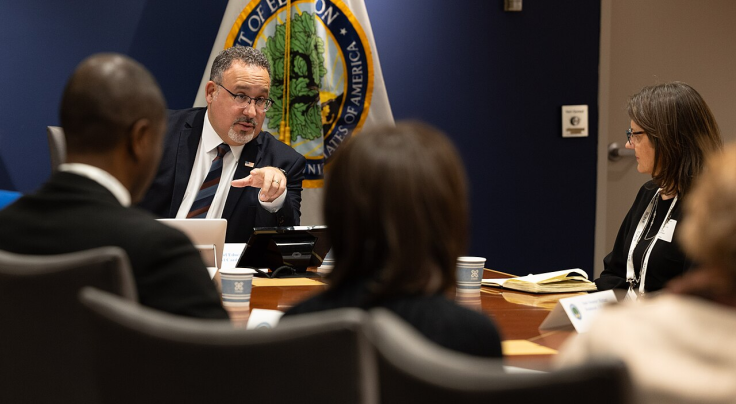
Despite excessive troubleshooting, the revised FAFSA application will be delayed for the second consecutive year, the U.S. Department of Education announced Wednesday.
The form will not be fully available until Dec. 1 for the 2025-26 academic year. The form, typically released on Oct. 1 will initially launch in October for testing with a limited group of students and institutions.
The delay follows persistent issues with last year's redesigned FAFSA, which was intended to streamline the process but instead led to numerous bugs and data entry problems. This resulted in inaccurate aid calculations and significant delays in processing, affecting students' ability to finalize their college plans.
"The fact that we are still, to this day, dealing with the aftershocks of this year's FAFSA rollout shows just how imperative it is that the process is thoroughly tested from end to end and launched as a system, not in a piecemeal manner," NASFAA Interim President and CEO Beth Maglione said in a statement.
Problems with this year's federal student aid forms persisted into last month, when the Education Department revealed that institutional batch corrections for the 2024-25 FAFSA would not be available as promised in mid-August. Instead, colleges must now submit corrections individually for each student. This change could delay financial aid processing, potentially leaving some students unable to pay their bills before classes start.
Education Secretary Miguel Cardona defended the delay in a Wednesday statement, stating that the phased rollout will allow for feedback and improvements.
"The Department listened carefully to the input of students, families, and higher education institutions, made substantial changes to leadership and operations at Federal Student Aid, and is taking a new approach this year that will significantly improve the FAFSA experience," Cardona said.
The 2024-25 FAFSA rollout faced similar delays, causing issues with processing and aid calculations. Richard Cordray, the former head of the Federal Student Aid office, resigned in April, and Jeremy Singer from the College Board was appointed as his replacement.
The department aso reported progress in processing FAFSA applications. While applications were down 4% from the 2023-24 cycle, this was a significant improvement from the 40% decline seen earlier in March. However, many college administrators and families have faced significant challenges due to the delays.
"We've heard from students, families, higher education professionals and other stakeholders loud and clear: They want a better, simpler FAFSA process, and they want to know when they can reliably expect it," Singer said. "In close collaboration with partners, FSA is confident we will deliver not only a better product, but also a smoother process than last year. One that makes higher education more accessible and within reach for more Americans."
The Education Department said it would share regular updates with students and families.
© 2025 University Herald, All rights reserved. Do not reproduce without permission.








